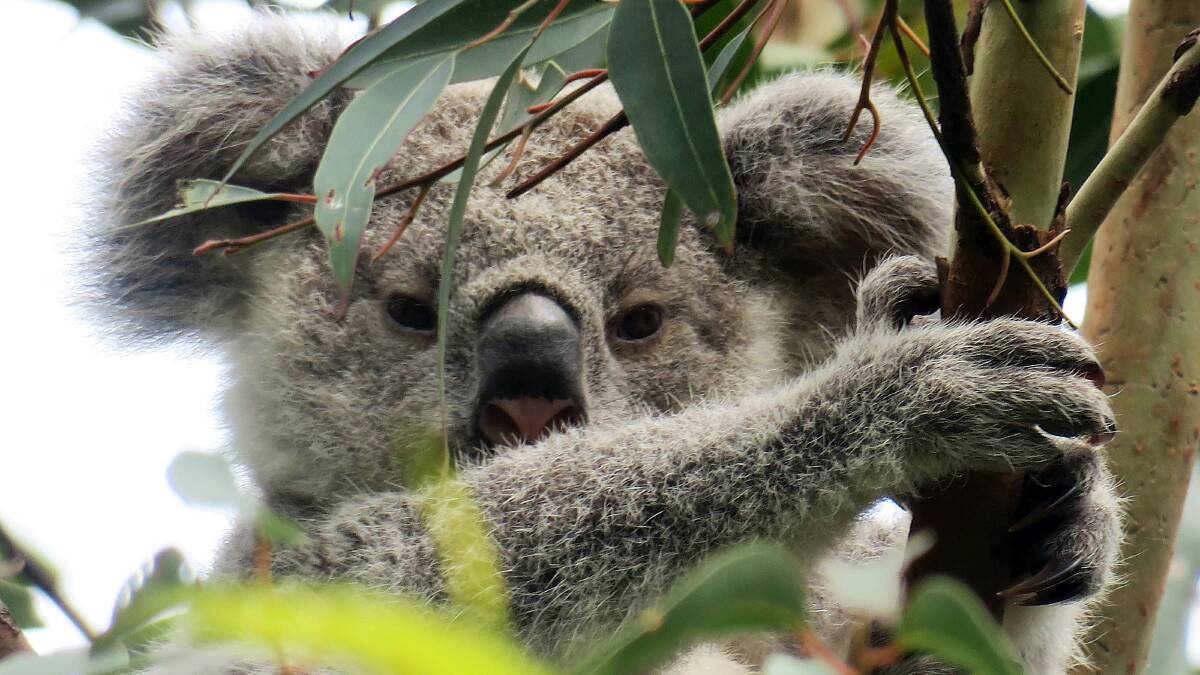
Since 1970, when I was five years old, the world has lost 70 per cent of its wildlife.
Subscribe now for unlimited access.
or signup to continue reading
The remaining 30 per cent are under accelerating threat, not only from human encroachment and habitat loss, but through climate change.
Those numbers can be hard to comprehend. But knowing that there is a risk of extinction for our koalas should shock us all into action.
I remember post-postmortems on koalas at vet school. The strong scent of eucalyptus, and my wonder at their capacity to digest and metabolise gum leaves, which few species can do.
Now imagine those gum leaves being drier.
We may have planted trees for our koalas, but of those koalas left, will they cope with the changing leaf structure?
Animals are experiencing cascading and compounding impacts through our growing human population and increased consumption.
We absolutely must protect forests from logging. Animals need their own territories; they need their lands not to be cleared.
But of the many threats to our animal species, climate change might top them all.
Escalating heatwaves, fires, storms, cyclones and sea-level rise are hurting the animals we love.
We have lost 3 billion in wildfires. One-third of the spectacled flying fox population perished in a single heat wave. Two-hundred ring-tailed possums died of drinking salty seawater due to extreme thirst.
Heat impacts the capacity of bird fledglings to reach full size, threatening the robust resilience they need as adults to bring forth the next generation. As sea levels rise, the increasing salination of estuaries will certainly bring untold complexities for our wildlife.
Our grandchildren will see green turtles because they live to an old age. But with just 1 degree warming of sand, 99 per cent of our northern green turtles will hatch female. Freshwater crocodiles experience a similar bias in reverse, with disproportionate male hatchings. Such tragedy in the delicate balance of the sexes.
MORE OPINION:
Veterinarians understand loss. In 31 years as a clinical veterinarian, I shed a quiet tear with almost every family whose pet came to the end of its precious days. So as a profession we are deeply moved by these catastrophic losses to our animals. Vets for Climate Action, with more than 1500 veterinarians and animal care professionals, is united to help protect our pets, livestock and wildlife. We enthusiastically embrace every strong stance to protect them.
That strong stance must include deep greenhouse gas emissions reductions this decade.
The Queensland government's announcement last week of a 70 per cent renewable energy target by 2032 and the winding-down of coal-fired power stations by 2035 is a great step forward.
We need strong targets at all levels of government to protect the wildlife we care about.
October 4 marks World Animal Day. It's a great reminder that we can all do our bit to save animals by demanding climate action.
This is the critical decade, and every decision we make matters, for all time.
- Jeannet Kessels is the Chair of Vets for Climate Action

